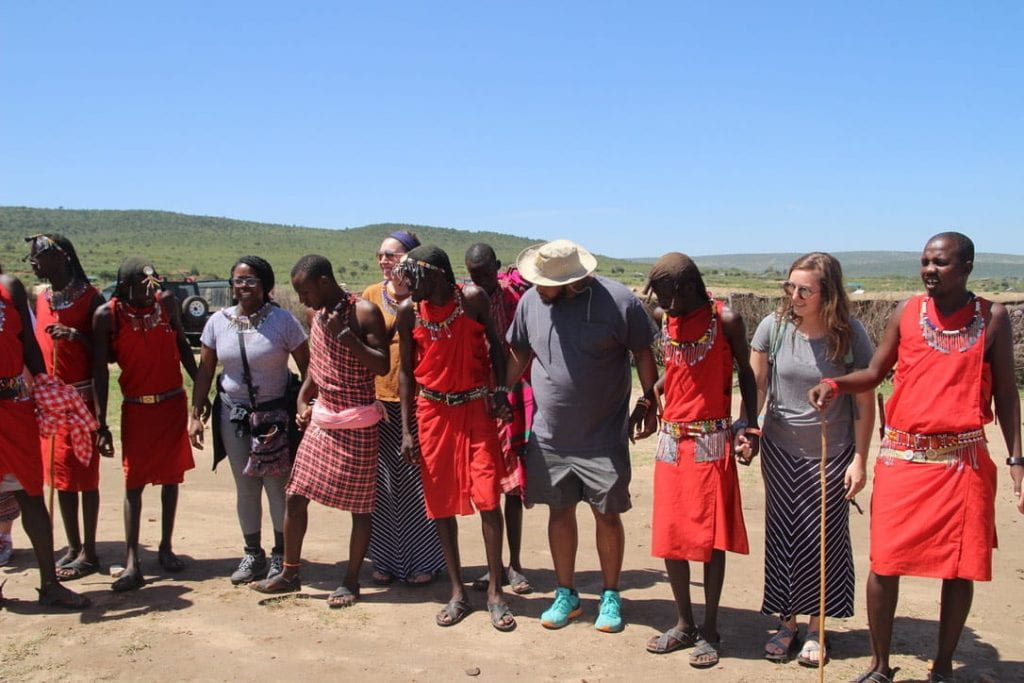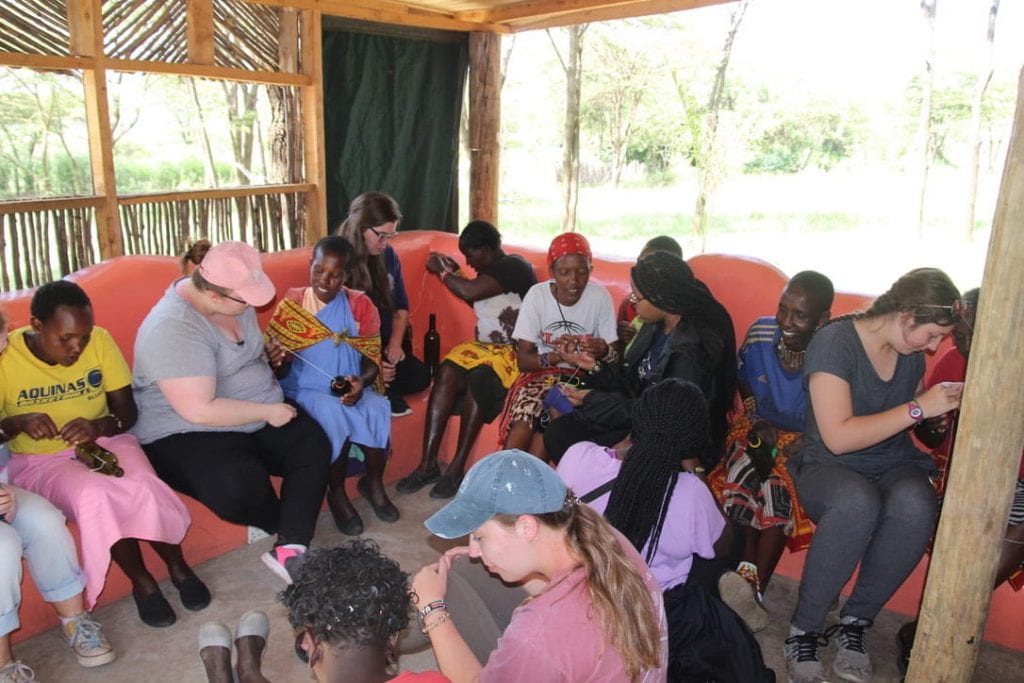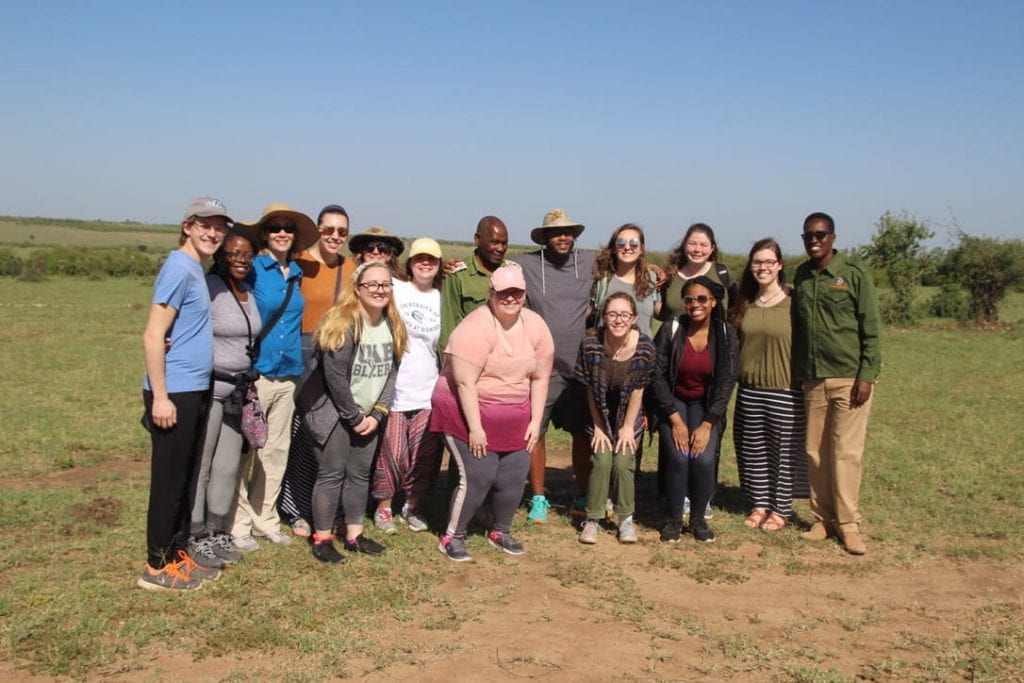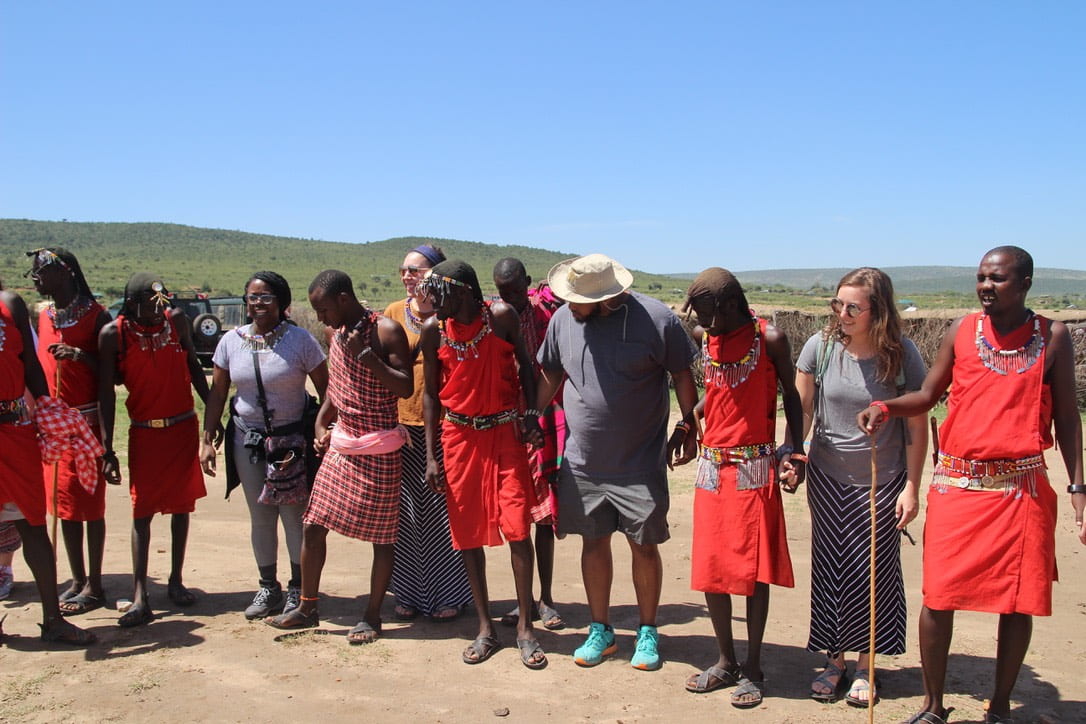
As the world has grown smaller, and the global economy and policies have pushed their way to the focus of peoples concerns, many citizens have altered their attention from the nation to the globe, defining themselves to be a global citizen. Since the introduction of social media, I have seen how easy it is to know what is happening around the world. With easy access to international information, I have seen more of my own generation focus on what they can do to help people on the international stage. Specifically, when my friends and I began deciding what we wanted to study as undergraduates, we were not focused solely on what we wanted to do but also how we could use our major to help others around the world. We would consider ourselves to be global citizens. What does it mean to be a global citizen?
Over spring break 2019, I traveled with the UAB Social Work Department along with Dr. Stacy Moak and Dr. Tina Kempin Reuter to Kenya. While we were there to work on projects that centered around a multitude of social work topics, I learned what it means to be a global citizen and how my definition of that changed throughout the trip. Before leaving for Kenya, I considered myself a global citizen, but I was not certain about what it meant to be one. From my experience in traveling, I defined a global citizen to be someone who understood that there were cultures and communities outside their own community that should be appreciated.
Before the class began, my knowledge of African culture was limited to what I saw in movies like the Lion King and Black Panther. During the class we prepared for our trip by creating lessons on our projects, expanding our knowledge about Kenyan culture, and preparing supplies to take to the groups we were meeting in Kenya. This knowledge helped me establish a basis of understanding for the communities we would be visiting. As part of our class, we read My Maasai Life: From Suburbia to Savannah by Robin Wiszowaty which educated me on many Swahili and Maa words as well as specific cultural details within the Maasai Mara. We also had a lesson on human rights and what should be available to all humans. This lesson opened my eyes to a part of global citizenship that I had not thought of because of my little education on human rights. To help communities around the globe, I must know what’s going on in international and national legislation to know where those human rights are being violated or taken away. This knowledge grants the ability and responsibility to work towards a better world where everyone has their basic rights as a human.

Before this trip, I had believed that this understanding would be enough to establish an appreciation for the community of the Maasai Mara. While I did appreciate the culture, I soon realized that fully experiencing a community is far more important than learning from documentaries and online sources. The experience that creates a deep connection towards communities of the world is one that is achievable when you focus on the people around you. Throughout our time in the Maasai Mara, my definition for a global citizen was redefined. From getting to go inside a Maasai community to doing beadwork with some of the hardworking Maasai mothers, I began to create relationships within the community, some even without a common language to speak.
One afternoon the students and professors sat down with the Maasai women to learn how to make soap and do beadwork, we had learned that these women used these skills to make money for their families. The woman who was tasked with trying to teach me how to do the beadwork was very patient and kind, and we didn’t even speak more than a few words to each other. I know little to no Swahili or Maa, and the woman knew no English. We were able to find a way to establish a friendship through unspoken communication, involving a lot of laughter at my inability to put beads on a string. It seemed impossible before I came to Kenya to establish a friendship with someone who came from a vastly different culture and background from mine especially if there is no common language spoken. I quickly from the trip that not only can you form relationships with people from all walks of life, but they are necessary to understand and fully appreciate the communities you visit when traveling.
While at Cara, a women’s rescue facility outside of Nairobi, I learned more about the role that I play in communities around the world. As we sat around a table where students were discussing social work practices with the counselors at Cara, I saw how the exchange between communities is important as well. We learned that the women at Cara, had the experience to help the young ladies in their facility but they needed supplies, as well as some specific lessons, plans that they hoped we could develop later for them as a future project. This exchange taught me that first, to help a community, you must be told what they need from the community itself, you cannot interpret this yourself. As an outsider in a community, I would never know what people need; therefore, by being told by the community, our group was able to help with the specific needs of the community. Second, as a global citizen, my role is not to go into communities and change them to look more like mine. My community is not always right. Therefore, you must communicate and exchange information to meet the community where they are at. Thus, I redefined a global citizen to be someone who sought out friendships so that they could enhance their love for a community and exchange knowledge to put in place future projects that would aid members of the community.

Once I returned from Kenya and quickly fell into my daily routine as a student, I found that a few more things about how I was defining a global citizen changed. The definition is not simple or short because to be a citizen of the globe involves a lot of thought and appreciate as well as work. As a global citizen, it is important to create relationships in a community to see the community as your own because as a global citizen your community is the globe. This leads to the service aspect of a global citizen. Because these communities are part of your community, you must work to help those communities where they need it, if that need is established from the community itself, while working to preserve the beauty of the culture within the area. It is your responsibility to make sure the people in your global community have the rights they deserve as a human. Therefore, you must say up to date on current events surrounding legislation around the globe especially when that legislation infringes on human rights.
While I was only able to spend a week working on the projects, my trip will be able to impact how I see myself in the world for years to come. I know now what my job is as a global citizen and how I can do that job to the best of my ability. I hope soon more people will see their role as a global citizen so we can move towards furthering knowledge for the different cultures around the globe, access to human rights for all, the exchange between communities, and international friendships.

